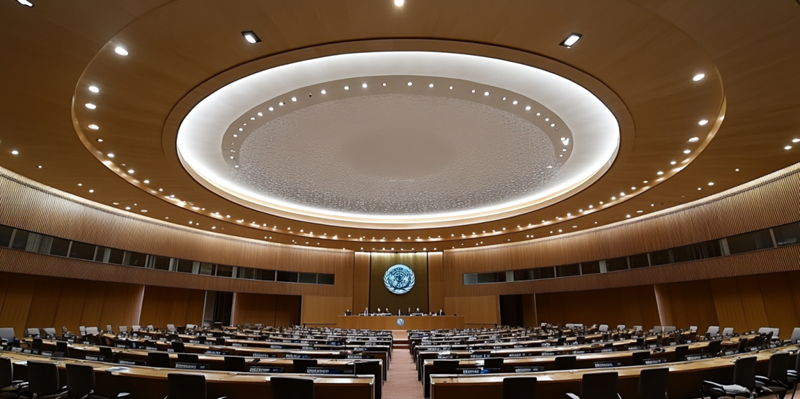As the digital landscape continues to evolve, the push for robust international laws to combat cybercrime has become increasingly significant. Yet, not all efforts to create these laws are met with universal approval. The United States’ continued support for a contentious United Nations cybercrime treaty, proposed by Russia in 2017, has stirred significant debate and opposition from Western technology and cybersecurity firms. The Biden administration believes that such a treaty could enhance international law enforcement cooperation to tackle cybercrime, despite criticisms regarding the potential criminalization of security research and the expansion of police surveillance.
Diverging Perspectives on Human Rights and Cybersecurity
Opposition from Tech Firms and Human Rights Groups
The negotiations that concluded in July 2024 saw a critical divide between the treaty’s supporters and detractors. The Cybersecurity Tech Accord, along with numerous tech organizations, voiced their concerns, stressing that key issues had routinely been overlooked. There is widespread worry among these groups that the current scope of the treaty would have unintended negative consequences, such as criminalizing activities essential for maintaining cybersecurity.
Human Rights Watch and over 100 other international groups echoed these sentiments. They criticized the treaty for failing to adequately safeguard the interests of security researchers, whistleblowers, activists, and journalists. These stakeholders are vital in holding governments and corporations accountable, and there is apprehension that the treaty could oppress their activities under the guise of combating cybercrime. The lack of explicit protections could translate to repressive actions, stifling free speech and innovation in critical sectors.
Potential Impact on Everyday Activities
An alarming aspect highlighted by critics is the treaty’s potential implications on seemingly benign digital activities. For instance, under the extensive scope of the proposed treaty, everyday actions like minors sharing selfies could unjustly be classified as cybercrime. Such overreach could lead to an increase in unnecessary surveillance and criminal charges, disproportionately affecting individuals engaged in legitimate activities.
Despite these criticisms, senior administration officials in the United States maintain that the treaty possesses the potential to strengthen collaboration and streamline efforts to counter cybercrime on a global scale. They acknowledge the concerns raised by various stakeholders and emphasize the administration’s ongoing commitment to engage with these groups to mitigate risks and curtail potential misuse of the treaty’s provisions.
Weighing the Benefits Versus Potential Repercussions
The Administration’s Vision for the Treaty
The Biden administration’s unwavering support for the treaty is rooted in the pursuit of a more cohesive international approach to combat cybercriminal activities. Officials argue that such a treaty could bridge gaps in current cybercrime enforcement mechanisms and foster a cooperative environment among member nations. They believe that the framework could pave the way for better information sharing, resource allocation, and coordinated operations to dismantle cybercriminal networks more effectively.
Furthermore, U.S. officials argue that despite its flaws, the treaty can be instrumental in developing stronger legal protocols to address emerging cyber threats. The inclusion of human rights safeguards in the treaty is an essential aspect the administration seeks to champion. By advocating for stringent protections, they aim to ensure a balanced approach that upholds human rights while fortifying international cybercrime laws.
The Call for Alternative Solutions
Conversely, experts and major companies like Microsoft have expressed dissatisfaction with the unresolved fundamental issues in the treaty, particularly regarding its purpose and scope. These entities suggest that a more effective course of action would be to bolster the enforcement of existing treaties. The Budapest Convention on Cybercrime and the U.N. Convention Against Organized Transnational Crime are cited as existing frameworks capable of addressing cybercrime if applied more vigorously.
There is an overarching trend of dichotomy between governmental and non-governmental entities’ perspectives on the proposed treaty. While governments largely focus on the potential for enhanced international cooperation, the private sector and civil society organizations stress the risks of overreaching measures that could stifle cybersecurity research and personal freedoms.
Moving Forward Amidst Controversy
Balancing Cooperation with Safeguards
The pursuit of a robust international treaty to combat cybercrime mirrors the complex interplay between the need for security and the preservation of individual liberties. While the treaty’s intention is to bolster global measures against cybercrime, its broad scope remains a point of contention. It is imperative that any international cybercrime framework strikes a balance between fostering international collaboration and safeguarding against the undue criminalization of legitimate activities.
Stakeholders must work in concert to address the treaty’s potential for misuse. This collaborative approach would involve refining the treaty’s language to explicitly protect the rights of security researchers, activists, and journalists, while still providing the tools necessary to combat cybercrime effectively. The engagement between governmental bodies and tech firms, alongside human rights organizations, is crucial in this endeavor.
A Path Toward Effective Cybercrime Measures
As the digital world keeps evolving, the need for strong international laws to fight cybercrime has become more critical. However, not all attempts to create such laws gain widespread approval. The United States’ ongoing endorsement of a controversial United Nations cybercrime treaty, originally proposed by Russia in 2017, has sparked considerable debate and resistance from Western tech and cybersecurity companies. The Biden administration argues that this treaty could improve international collaboration among law enforcement agencies to address cybercrime more effectively. Despite these assertions, critics are concerned that the treaty might criminalize legitimate security research and lead to heightened police surveillance. Opponents worry that the treaty could stifle innovation and pose risks to individual privacy and freedom. Balancing the need for effective cybercrime laws while protecting personal freedoms remains a complex challenge. This ongoing debate underscores the difficulties in crafting international treaties that both secure and respect diverse interests in the rapidly changing digital landscape.

